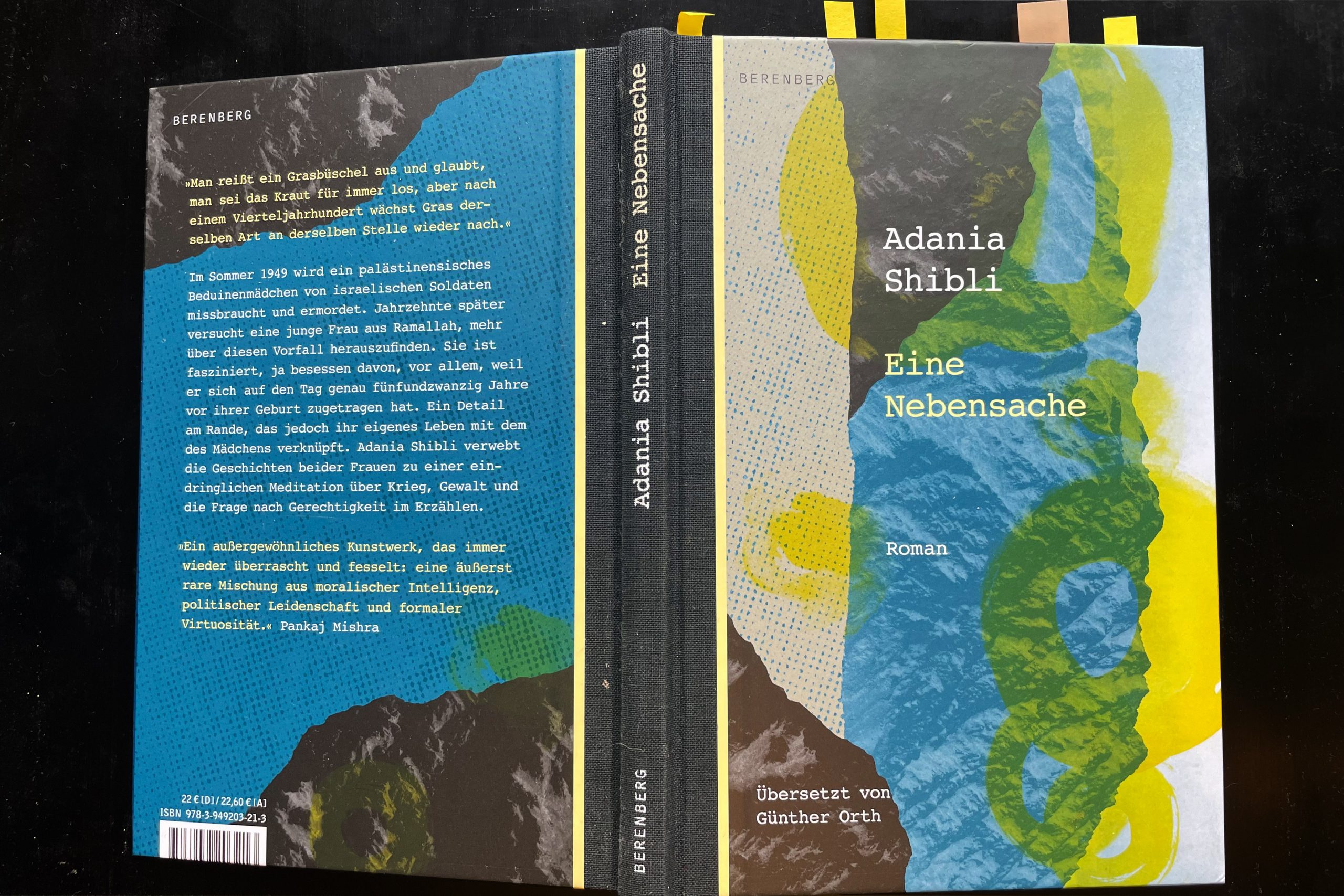Usually, these kinds of press releases are only written after the milk has been spilled. But perhaps it makes more sense to speak up before.
We’re talking about the Palestinian writer Adania Shibli, who is to be awarded the “LiBerature Prize 2023” during the Frankfurt Book Fair by the literature promotion organisation Litprom next week for her novel “Minor Detail” – which would probably have gone through without too much fuss if it hadn’t been for the brutal attack on Israel by Hamas terrorists, killing over a thousand people. Now, in view of the crimes committed in Israel, a growing number of voices in the German media are calling the award ‘unacceptable’ or ‘tactless’.
This criticism is, of course, legitimate. But the criticism must also accept its own critique. PEN Berlin spokesperson Eva Menasse said: “No book will be different, better, worse or more dangerous because the news situation changes. Either a book is award-worthy, or it is not. In my opinion, the jury’s decision in favor of Shibli, taken weeks ago, was an excellent choice. To withdraw the prize from her would be fundamentally wrong, both politically and literarily.”
Shibli’s novel deals with the historically documented mass rape and murder of a young Bedouin woman by Israeli soldiers in 1949. PEN Berlin spokesperson Deniz Yücel said that it was a “tragic coincidence” that Hamas had now attacked the site of the crime, now known as Kibbutz Nirim, which was a “brutal reminder that this bloody conflict has been going on for 75 years”.
The LiBeraturpreis is the first award for “Minor Detail”. The novel was previously nominated for the US National Book Award and the International Booker Prize. “It would be narrow-minded to discuss this novel only in the context of the debates taking place in Germany”, said Menasse.
After Hamas massacred hundreds of civilians, there was a conspicuous and painful absence of Palestinian and Arab voices unequivocally condemning these crimes. “But critical intellectuals must not be suspected and excluded from the outset in order to do so. They must be allowed to describe their own experiences of the Israeli occupation policy under which the Palestinians suffer, as Shibli describes in her outstanding novel”, Menasse said.
Yücel added: “One can consider the novel’s depictions to be accurate or too one-sided. Either way, ‘Minor Detail’ is far from the blatantly anti-Semitic drawings rightly criticised at Documenta. And we have always said that the freedom of the word includes the stupid word, and the freedom of art includes the freedom of stupid art. Of course there are limits. But in order to be able to set firm limits and, in clear cases such as the celebration of a mass killing, to be able to apply with all clarity and, if necessary, with all the consequences of the law on associations, criminal law and the law on foreign nationals, it must be possible to say as much as possible on this side of these limits.” This applies as much to the handling of the Middle East conflict as to any other controversial issue. “The fact that something must be able to be said does not mean that it is beyond criticism. The Book Fair should be the place to have such debates – not to stifle them”, Yücel said.
PEN Berlin. We stand by our word.

